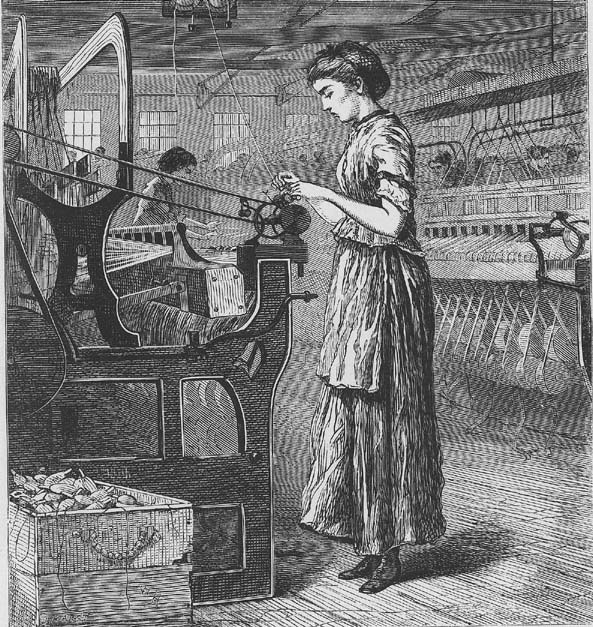This module is for Grades: 6-8 Welcome
The Industrial Revolution began in Europe in the late 1700s with the introduction of power-driven machinery in English and Scottish textile factories. This transition to new manufacturing processes soon influenced industrial and economic developments in the United States. In 1814, Cabot Lowell established the Boston Manufacturing Company in Waltham, Massachusetts. His textile factories became known as the Lowell Mills. Between 1830 and 1860, women were the key labor force for this growing industry. The wages ranged from $3.00 to $3.50 per week and were much higher than women could earn on their family farms or hometowns. Working in the mills allowed the women, known as “mill girls,” to earn their own way without depending on their families, and to save money for their future marriages. Women going to work in factories created cultural change, and it was a controversial issue in the mid 1800s.
In this module, you will read primary and secondary sources about the Lowell Mill Girls. You will use critical thinking skills in order to distinguish the author’s use of fact, opinion and reasoned judgment in writing about these events in history.
Module Objectives
By the end of this module, you will be able to:
- Use critical thinking skills to identify an author’s use of facts, opinion and reasoned judgment in their writing.

Women were a key labor force during early industrial development in the 19th Century.
Image Credit: Bobbin Girl by Winslow Homer, Lowell National Historical Park
Focus Standard
RH.6-8.8 - Distinguish among fact, opinion, and reasoned judgment in a text.
Skill
- Fact, Opinion & Judgment








